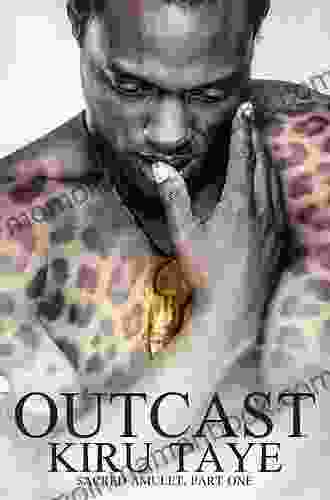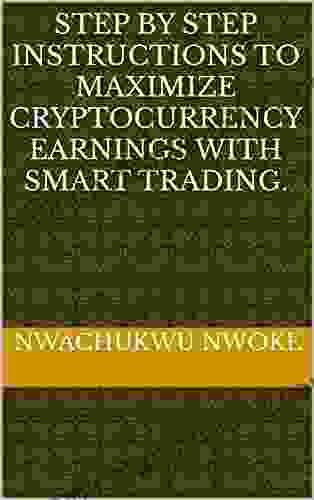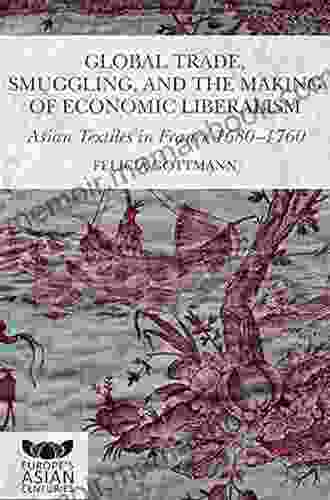Exploring the Nexus between Global Trade Smuggling and the Rise of Economic Liberalism

Throughout history, smuggling has been a clandestine practice permeating the global trade landscape. Its illicit nature has often challenged established norms and fiscal policies, fueling debates and shaping the trajectory of economic thought. This article explores the intriguing relationship between global trade smuggling and the rise of economic liberalism, examining how these illicit activities contributed to the erosion of mercantilist practices and the emergence of free market principles.
5 out of 5
| Language | : | English |
| File size | : | 4216 KB |
| Text-to-Speech | : | Enabled |
| Screen Reader | : | Supported |
| Enhanced typesetting | : | Enabled |
| Print length | : | 282 pages |
The Rise of Mercantilism
In the 16th and 17th centuries, mercantilism became the dominant economic system in Europe. Mercantilist policies aimed to increase national wealth and power through strict regulation of trade and the accumulation of bullion. High tariffs and monopolies were imposed to protect domestic industries and generate revenue for the state. These policies, while intended to foster economic growth, often led to inefficiencies, limited consumer choice, and illicit trade.
Smuggling as a Counterforce to Mercantilism
The rigidities of mercantilism created incentives for merchants and traders to engage in smuggling. By circumventing high tariffs and prohibitions, smugglers were able to offer goods at lower prices than those permitted by law. This illicit trade not only reduced government revenue but also undermined the intended effects of mercantilist policies. In turn, smuggling became a catalyst for challenging mercantilist orthodoxy and promoting economic liberalization.
Case Study: The Dutch East India Company and the Spice Trade
The Dutch East India Company, established in 1602, held a monopoly on the lucrative spice trade in Asia. They imposed strict quotas and regulations to control prices and maximize profits. However, Southeast Asian merchants took advantage of the company's limited enforcement capabilities and engaged in extensive smuggling, supplying European markets with spices at lower prices. The illegal trade weakened the company's monopoly and fostered the development of a more open and competitive spice trade.
The Erosion of Mercantilism and the Rise of Economic Liberalism
As smuggling became more prevalent, governments recognized the futility of overly restrictive trade policies. The constant need to enforce anti-smuggling measures proved costly and inefficient. Additionally, merchants and consumers began to question the benefits of mercantilism and advocated for greater economic freedom.
By the late 18th century, a new economic philosophy emerged, known as economic liberalism or classical liberalism. Its proponents, including Adam Smith and David Ricardo, argued for free markets, minimal government intervention, and the removal of trade barriers. They believed that free trade would lead to greater efficiency, innovation, and economic growth.
Smuggling as a Catalyst for Economic Liberalism
The widespread practice of smuggling played a pivotal role in the rise of economic liberalism. By demonstrating the inefficiency and harmful effects of protectionist policies, smuggling contributed to the erosion of mercantilism and the acceptance of free market principles. In addition:
- Smuggling created new markets: Smugglers established alternative distribution channels, supplying consumers with goods that were otherwise unavailable or prohibitively expensive.
- Smuggling promoted innovation: To evade detection, smugglers developed new methods of concealment and transportation, contributing to advancements in shipbuilding and navigation.
- Smuggling fostered entrepreneurship: By engaging in illicit trade, merchants gained valuable experience in risk-taking and market knowledge, which they later applied to legitimate businesses.
The history of global trade smuggling is a complex and multifaceted narrative, intertwined with the rise of economic liberalism. Smuggling, while often portrayed as an illegal activity, played a paradoxical role in challenging established economic norms, promoting consumer choice, and paving the way for the development of free market principles. Its impact on the global economy was profound, contributing to the liberalization of trade, the erosion of protectionist policies, and the creation of a more interconnected and prosperous world.
5 out of 5
| Language | : | English |
| File size | : | 4216 KB |
| Text-to-Speech | : | Enabled |
| Screen Reader | : | Supported |
| Enhanced typesetting | : | Enabled |
| Print length | : | 282 pages |
Do you want to contribute by writing guest posts on this blog?
Please contact us and send us a resume of previous articles that you have written.
 Top Book
Top Book Novel
Novel Fiction
Fiction Nonfiction
Nonfiction Literature
Literature Paperback
Paperback Hardcover
Hardcover E-book
E-book Audiobook
Audiobook Bestseller
Bestseller Classic
Classic Mystery
Mystery Thriller
Thriller Romance
Romance Fantasy
Fantasy Science Fiction
Science Fiction Biography
Biography Memoir
Memoir Autobiography
Autobiography Poetry
Poetry Drama
Drama Historical Fiction
Historical Fiction Self-help
Self-help Young Adult
Young Adult Childrens Books
Childrens Books Graphic Novel
Graphic Novel Anthology
Anthology Series
Series Encyclopedia
Encyclopedia Reference
Reference Guidebook
Guidebook Textbook
Textbook Workbook
Workbook Journal
Journal Diary
Diary Manuscript
Manuscript Folio
Folio Pulp Fiction
Pulp Fiction Short Stories
Short Stories Fairy Tales
Fairy Tales Fables
Fables Mythology
Mythology Philosophy
Philosophy Religion
Religion Spirituality
Spirituality Essays
Essays Critique
Critique Commentary
Commentary Glossary
Glossary Bibliography
Bibliography Index
Index Table of Contents
Table of Contents Preface
Preface Introduction
Introduction Foreword
Foreword Afterword
Afterword Appendices
Appendices Annotations
Annotations Footnotes
Footnotes Epilogue
Epilogue Prologue
Prologue Robert F Burgess
Robert F Burgess Linda Davies
Linda Davies Bunty Goswami
Bunty Goswami David Wood
David Wood Bettye Kearse
Bettye Kearse Elizabeth Ashworth
Elizabeth Ashworth Andrew Malan Milward
Andrew Malan Milward Lynn Mitchell
Lynn Mitchell Sarah Dees
Sarah Dees Lauren Mosback
Lauren Mosback Justo Marco
Justo Marco Nancy Arroyo Ruffin
Nancy Arroyo Ruffin Thomas L Friedman
Thomas L Friedman Kerry Hardie
Kerry Hardie Ramone Young
Ramone Young Kiru Taye
Kiru Taye Kate Fletcher
Kate Fletcher Phillip Margolin
Phillip Margolin Victor Hirtzler
Victor Hirtzler Scarlett Parejo
Scarlett Parejo
Light bulbAdvertise smarter! Our strategic ad space ensures maximum exposure. Reserve your spot today!

 Geoffrey BlairThe Final Coordinate: Unraveling the Mystery at the Heart of The Coordinate
Geoffrey BlairThe Final Coordinate: Unraveling the Mystery at the Heart of The Coordinate
 Percy Bysshe ShelleyMy Random Dew Drops Kiru Taye: A Journey of Inspiration and Empowerment
Percy Bysshe ShelleyMy Random Dew Drops Kiru Taye: A Journey of Inspiration and Empowerment Clay PowellFollow ·12.7k
Clay PowellFollow ·12.7k Edwin CoxFollow ·11.2k
Edwin CoxFollow ·11.2k Kazuo IshiguroFollow ·2.3k
Kazuo IshiguroFollow ·2.3k Kirk HayesFollow ·12.8k
Kirk HayesFollow ·12.8k H.G. WellsFollow ·6.7k
H.G. WellsFollow ·6.7k Ernest HemingwayFollow ·4.7k
Ernest HemingwayFollow ·4.7k Johnny TurnerFollow ·10.1k
Johnny TurnerFollow ·10.1k Christian CarterFollow ·18.3k
Christian CarterFollow ·18.3k

 Robert Browning
Robert BrowningGeorge Gershwin's "Love You Porgy" from Porgy and Bess: A...
George Gershwin's "Love You Porgy" is an...

 Gary Reed
Gary ReedFitness Exercise Motivation and Goals: Build Lean Muscle...
Embark on a...

 Terence Nelson
Terence NelsonEat More, Train Less, and Get Lean: The Mr. America...
In today's fast-paced world, achieving a...

 J.D. Salinger
J.D. SalingerThe Mystical Poetry of the Wise Magi: Interpreting the...
In the realm of...

 Blake Bell
Blake BellStep By Step Instructions To Maximize Cryptocurrency...
Cryptocurrency...
5 out of 5
| Language | : | English |
| File size | : | 4216 KB |
| Text-to-Speech | : | Enabled |
| Screen Reader | : | Supported |
| Enhanced typesetting | : | Enabled |
| Print length | : | 282 pages |










